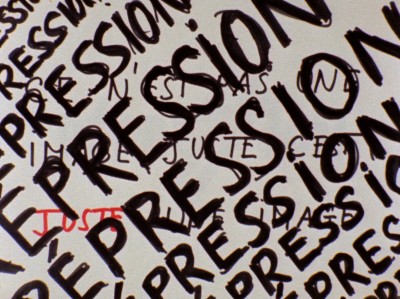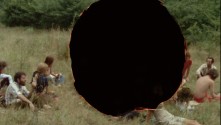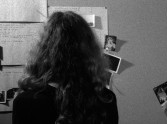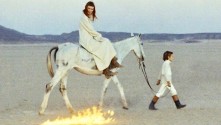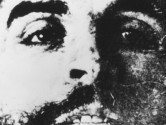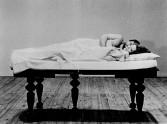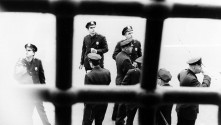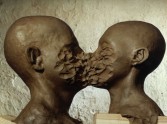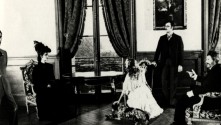
Wind from the East
(Le vent d’est)
With Gian Maria Volonté, Anne Wiazemsky, Christina Tullio-Altan.
France/Italy/West Germany, 1970, DCP, color and b&w, 95 min.
French, Italian, English and Portuguese with English subtitles.
DCP source: AGFA
The very first issue of Afterimage, published in 1970, with its cover and illustrations from Godard’s Ciné-tract newsreels shot during the upheavals of May ‘68, included Godard’s own notes on British Sounds (1969) and Pravda (1970), films made under the sign of the Dziga Vertov Group, alongside an original manifesto “Que Faire?/What is to be Done?” In that manifesto, coloured by Maoist/Marxist-Leninist rhetoric and the spirit of “self-criticism,” Godard writes of the need to not just make political films but “make films politically.” Le vent d’est was perhaps one of the most elaborate attempts to do that and in the words of one critic describing the films of the Dziga Vertov period becomes “a guerilla handbook of explosive radical film and politics.”
Starting from the format of the Western—or even spaghetti Western, given the star presence of Gian Maria Volonté, not to mention Allen Midgette of Warhol’s Lonesome Cowboys, alongside Godard’s muse of the period Anne Wiazemsky—it is a film being debated and critiqued as it proceeds. With a constant critical interaction between images and sounds, its spirit is radically Brechtian, allowing the viewer no falling back into the comfort of bourgeois forms of cinema. As he outlined the film’s strategies of fragmenting narrative, distancing, open forms and radical mixing of fiction and documentary in his essay on Le vent d’est as “counter cinema” in Afterimage 4, Peter Wollen, writing in 1972, concluded: “Le vent d’est is a pioneering film, an avant-garde film, an extremely important film. It is a starting point for a revolutionary cinema. But it is not that revolutionary cinema itself.” It is a fascinating and challenging film to look back at, bearing in mind Godard’s return to more auteurist art cinema but also the constant self-reflection on cinema of the late, great essay films like Livre d’image.
